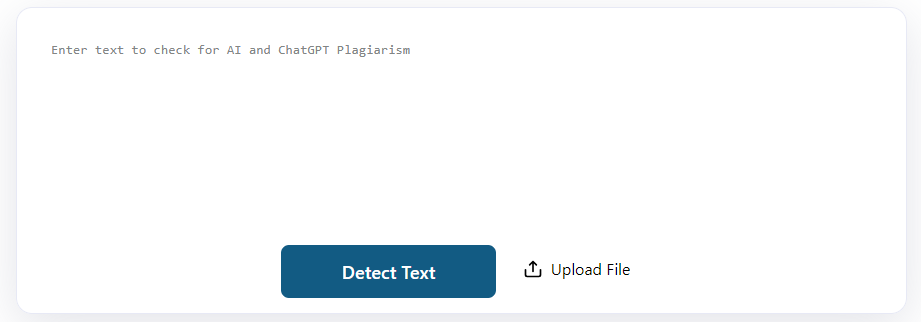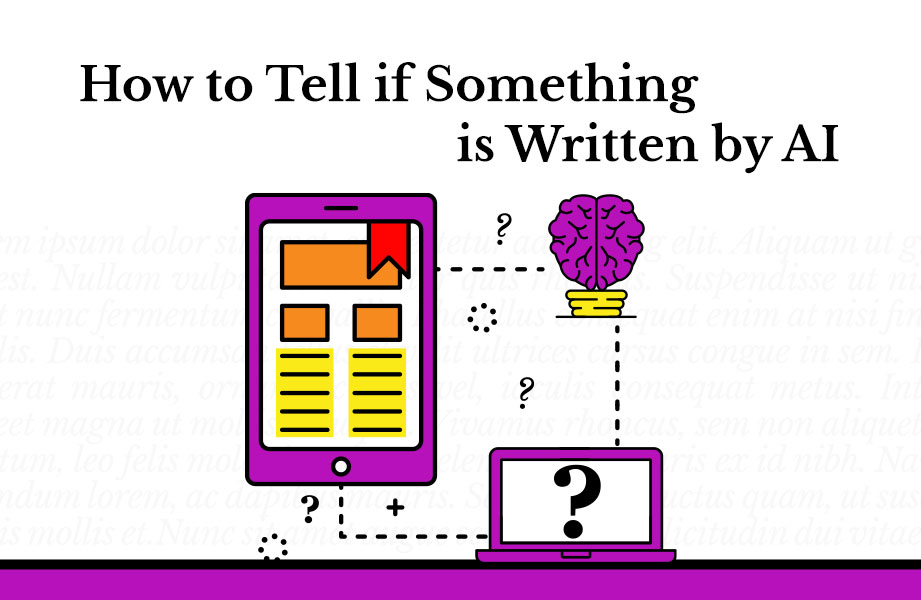AI is here to stay, and it’s going to be in the content world at least for now. With all this AI content out there, how can you tell what is written by AI and what isn’t? Does it even matter? Perhaps we can help.
Why Would You Want to Know if Content is Written By AI?
AI has come a long way, and in some cases, an AI piece of content can read almost as well as a human-written piece of content. However, there are many situations in which you may want to know if AI is being used to write content. Perhaps you’ve hired someone to write content for you, you are testing the skills and knowledge of an individual, or maybe you are just curious.
Either way, there are a lot of reasons why determining if AI was used in the creation of content could be important. We will get to how to detect AI-written content in a moment, but first, let’s explore if it actually matters if the content was written by AI.
Is AI a Concern for SEO?
Google initially said the AI-written content would be demoted or not ranked at all. They have since changed their tune on that, likely due to their own AI development with Bard. However, it’s entirely possible that they change their minds again if Bard doesn’t work out—it hasn’t been doing well so far.
Even so, search engines like Google reward good, well-written, and accurate content. These are areas where humans excel and AI has lagged behind. If you want to make sure your SEO boat doesn’t spring any leaks, then avoiding AI-written content is a good idea.
Is AI-Written Content Accurate?
In truth, there is still much that we don’t know about what’s under the hood for some of these AIs like ChatGPT and Bard, but we can see the evidence all around us. AI content is often not accurate. To be fair, the same is true for a lot of human-written content too. The difference here is that when you want content you can rely on, you typically know the sources you trust, but what happens when they start using AIs and not telling anyone?
You typically trust a lawyer to know case law right? Or you at least expect them to be citing accurate and real cases in their judicial opinions, right? Recently, a law firm submitted a judicial opinion complete with quotes and citations from other cases. All six cited cases were entirely fake though. This wasn’t because the lawyers made them up but because they entrusted ChatGPT to handle the judicial opinions for them.
Boost Your Content Writing Without AI
How to Detect AI Written Content
AI is still finding its home on the Internet. Rules are changing quickly, AIs are evolving, tools are growing, laws are struggling to catch up, and no one knows how AI will fit into their business or their lives months from now, much less years.
Checking if the content is written by AI is also a developing field. Currently, you have two ways to know. It can either be disclosed up front or you can use a tool to figure it out. This landscape is changing too though. ChatGPT has even promised to add in its own method for detecting content written by its AI.
Do Authors Have to Disclose if Their Content is AI-Generated?
This is a good question, and the general answer is actually yes. If you use AI to create content according to the terms of service of many of the most sophisticated AI content generators, you must disclose the use of AI in the presentation of the content. This is even true for the U.S. copyright office as well.
This is all true in theory, but in practice, results are mixed. People want to use AI-written content, but very few want to read or trust it. Because of this, many that use AI-written content choose not to disclose it. In reality, as long as copyright protections aren’t important to them, they don’t have too many consequences right now. In the future, SEO changes could take them down, but right now, it’s the wild west out there.
Top 10 Reasons Why You Need Content Marketing
Tools that Can Detect AI-Written Content
Currently, there are a lot of tools out there, many of them are just projects run by individuals, using machine learning against the AIs to identify AI-generated content with a reasonable degree of accuracy. Right now there is no surefire tool that will always yield the right answer, but there are several that when used in conjunction with each other can paint a picture and give you some reasonable doubt.
Below, we have a list of a few of the ones we have used in the past:

Keep in mind that this field is rapidly developing with new tools springing up constantly, and every wave of tools seems to be even better than the last. It’s also worth noting that if individuals are able to develop these tools quickly the tools that search engines like Google could develop will only be better and more accurate. Long story short, if you think you can fool these tools now with smart edits and proofing, you may not be able to in the future, and companies likely already have tools that could find you out if they wanted to.
